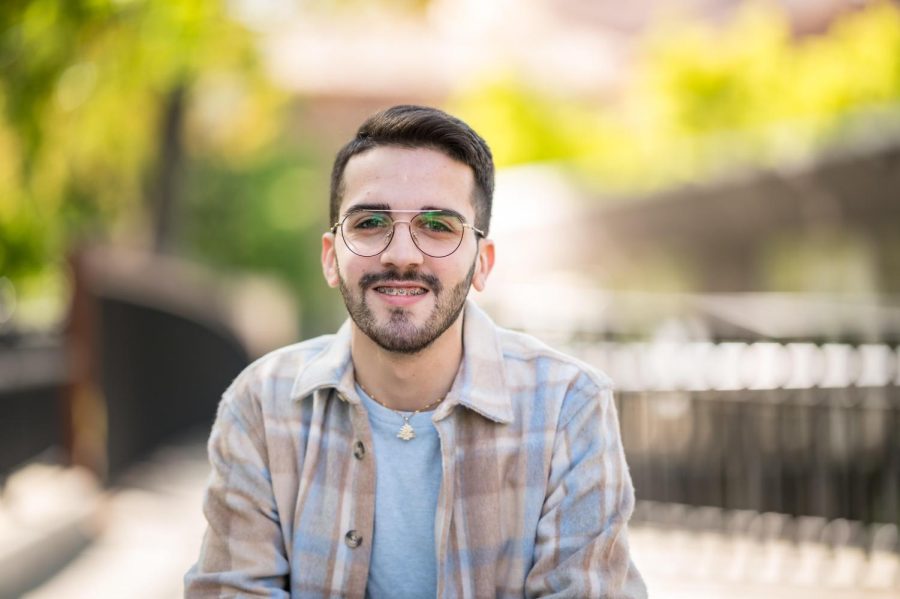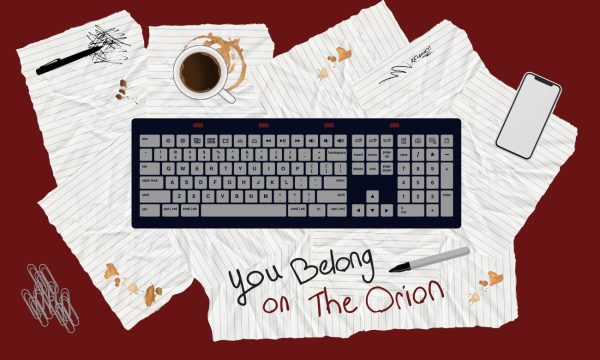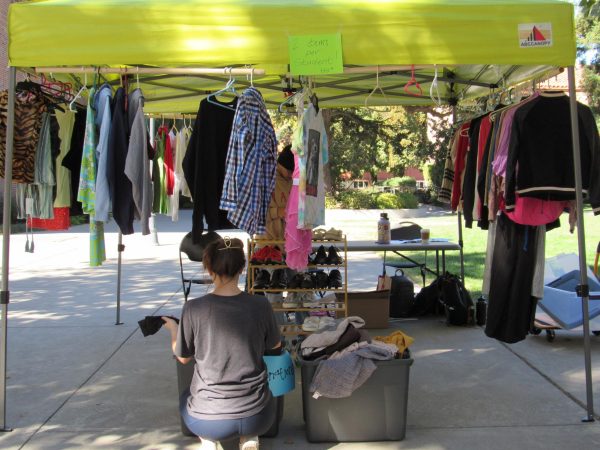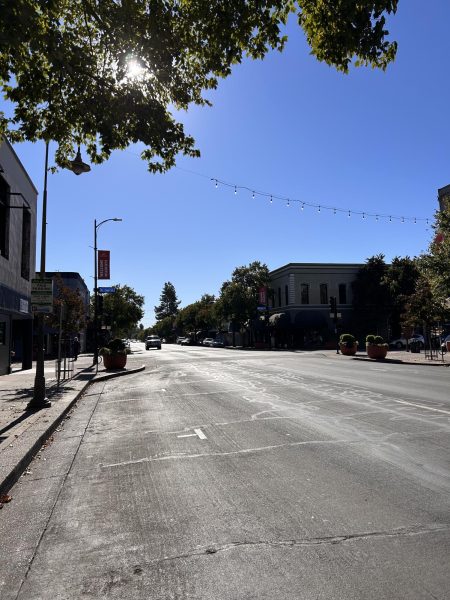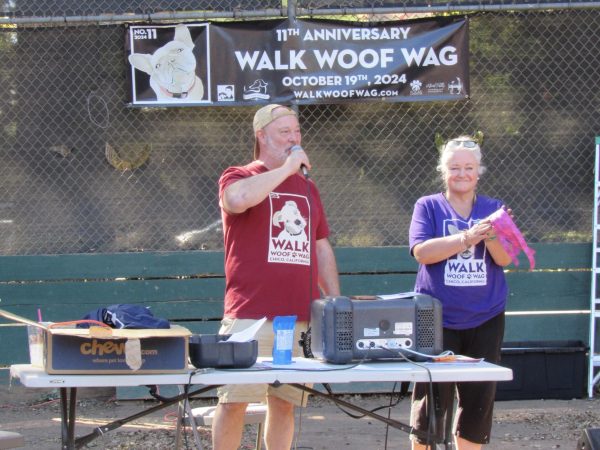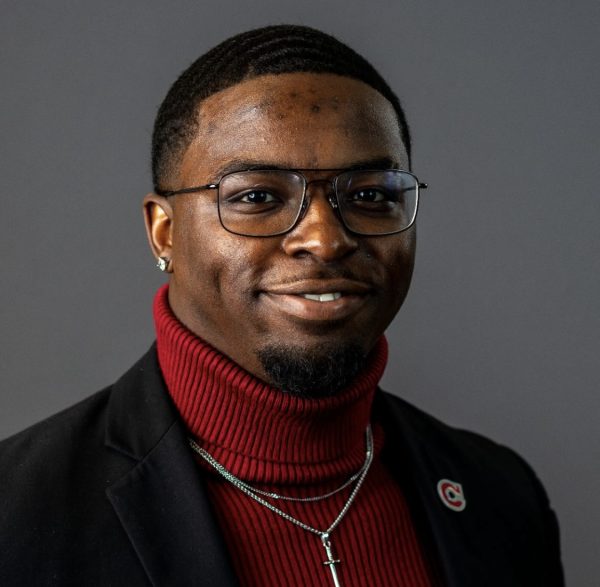College of Natural Sciences student awarded full-ride scholarship to Johns Hopkins University
Chico State’s University College of Natural Sciences awarded Hikmat Abou Shahla, as one of the Student Gonfaloniers for the 2023 Commencement Ceremonies of his class. Abou, as he prefers to go by, is graduating this semester as a pre-med student with a bachelor’s degree in cellular and molecular biology and a minor in general chemistry.
Cindy Mckay, immigration specialist and advisor, said, “Hikmat is a gem; one in 10 million. He knows where he’s going in life, and he puts the work in to get there. He does all that he does, which is a lot, with a smile on his face, all the while, uplifting others around him. What stood out to me was his passion for connection with and service to others.”
He is graduating from his class with an accumulated GPA of 3.96 and has been accepted into Johns Hopkins University on a full-ride scholarship, which has a 7.5% acceptance rate. Out of every 120 cohorts only one student is selected for the full ride scholarship. His outstanding work and dedication to pre-med earned him this scholarship.
“The moment I got my acceptance letter I was so excited, I almost failed my first exam that day from all my excitement, it was surreal,” Abou said.
Abou’s journey started back in 2017 when he attended Las Plumas highschool in Oroville as an exchange student. He is from Rashaya, Lebanon and part of the Druze ethnic minority group.
“I was actually meant to go to a room and board in Ohio, I packed all my winter clothes just for them to cancel at the last minute. I was thrown back into the drawing waiting for a host family to pick me and it just so happened to be in Oroville.”
The overwhelming feeling of acceptance from his host family in Oroville made him choose Chico State after his exchange program was over. Although his presence was welcomed in the hearts of his host family, he had a difficult time adjusting to American culture.
Abou explained he comes from a very traditional background that includes heavy religious beliefs and gender roles.
He recalled a memory he had in his exchange year, experiencing American high school for the first time. He was taking a culinary class and was told to wash the dishes. He refused.
“They told me to do the dishes and I was like what? That is not my job, I am a male.”
He was then scolded by the teacher and was in charge of dishes for the rest of the semester.
“I look back and it is just so funny to me how culturally I was so confused at first, luckily everyone around me was supportive of my cultural background that they did not shame me for my thinking,” Abou said. “They all took the time to teach me new ways of thinking and how American culture works.”
He expressed how coming into a new culture was hard at first. His culture was far different from America’s. He often found it hard to express himself because of the language barrier, leaving him frustrated and misunderstood. For the most part he felt different, like he couldn’t fit in as an international student.
However, as he tried to push through all these emotions with a goal of succeeding at an American education it unfortunately got more complicated. In 2020 due to the COVID-19 pandemic, the Trump administration had immediate orders for all international students to go back to their homelands.
All flights into Lebanon were canceled because of the pandemic, and he had to spend $2,500 on a one-way ticket home.
“It was the only flight and the soonest, which was May 8. I hate that I spent that much money on a flight but I had no other option.”
As he settled back home he chose not to give up. He did his sophomore year online like most college students but the time difference was drastic. He attended school online from 10 p.m. to 6 a.m. his time. He struggled with a proper sleep schedule and lack of quality time with friends and family.
He was ready for the pandemic learning to be over. He didn’t think it could get much worse.
August 2020, an explosion in Beirut Lebanon killed about 200 people and left thousands missing or unidentified. This is the capital of Lebanon and minutes away from where Abou was living.
“I remember the screaming, the crying, and how dust covered these people’s skin. There was so much dust you could not see an inch of skin on them.”
With a passion to serve his people he wanted to help during this tragic time. He signed up to volunteer at the local hospital to help during this crisis.
During the day he helped identify missing and deceased people and contacted the families, while at night he attended online classes.
Tasha Alexander, International Student and Scholar Services coordinator and advisor, said “Each and every second of the 24 hours given to him each day were accounted for — and he never once complained about being tired or overwhelmed. He always said how fortunate he felt to be given the opportunity to serve.”
Abou was able to stay focused and these hardships brought him more determination than expected.
“I always knew I had a calling to serve people, my time trying to help my people I felt so useless. I had little to no medical knowledge and not being able to help my people to the best of my ability hurt me, but it also motivated me to keep going because one day I want to be able to help people medically. I do it for my people, they are my motivation.” Abou said.
As the terror of screams and agony continued for months, the restless schedule and mental exhaustion finally ended when Abou was welcomed back into Chico State for his junior year in 2021.
He felt an overwhelming sense of relief exiting his plane and stepping back onto U.S. territory. He was away from chaos, socioeconomic issues and highly intensified political issues from back home.
The worst was finally over, he could really focus on his education and his social life. He was welcomed back by his host family with warm hugs and loving energy. He got a job as a certified nurse assistant through a six week program. Things were finally starting to look up.
Then in September 2021, his host father unexpectedly died. The screams of agony returned and this nightmare seemed to close out all the light he regained.
“It was so unexpected, I considered him like a second father to me. This part of my life seems to be a blur, it was too tragic.”
Abou spent the next year focusing on himself and his studies. He spoke of how this shift of focus affected him.
“My best advice would be to not isolate or solely focus on academics. Being a part of research, clubs and socializing is what built my experience to its best potential. Even working at a hospital was so beneficial, I learned so much more there than I could have ever learned sitting in a classroom with a closed door.”
He explained that having these opportunities to be involved on campus and to socialize will build confidence and can foster knowledge so much more when outside a classroom.
Abou went on to create the Global Student Society Club which has a healthy growing number of students. He created the club to ensure a home away from home for international students.
“As an international student I definitely felt unwanted when I was sent back home during the pandemic. I hope all international students can take something from me, you are more than wanted here. You earned your spot to be here so try to fit in because you are more than welcomed here.”
He recommends all students to reach out as much as possible for resources as he was able to conduct research with his own Professors. He is working on publishing his research next month on the topic of pre-decision about death in the hospitals. His research goes into a thorough context of when physicians should start to explain to patients the extent of their condition and how to prepare for the next steps, which would be death. He proposes the idea that medical terminology should be taught to the public so in the case of any diagnosis, that individual would understand the seriousness of it. The research goes into this idea in order to allow an individual to peacefully transition into that phase for themselves or their families and not within the hospital.
“I wouldn’t imagine being accepted at Johns Hopkins if I didn’t have an education at Chico State and the opportunities to conduct research, participate in campus clubs, and maintain a job. I feel set and secure for the rest of my life. I could not be any more grateful for the faculty at Chico State helping me achieve my calling to serve people.”
As Abou continues his journey in healthcare, Chico State commends him for his outstanding work.
Abbigail Kovac can be reached in [email protected].




